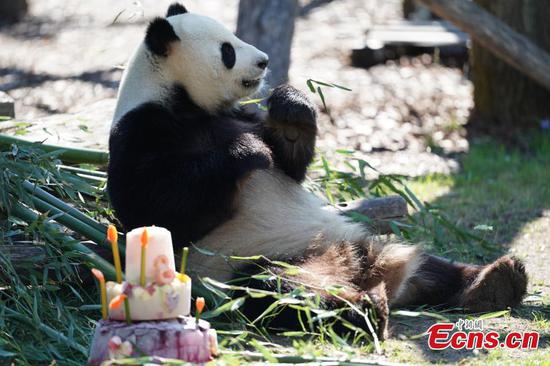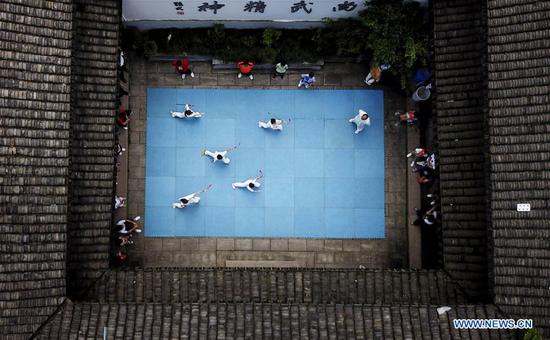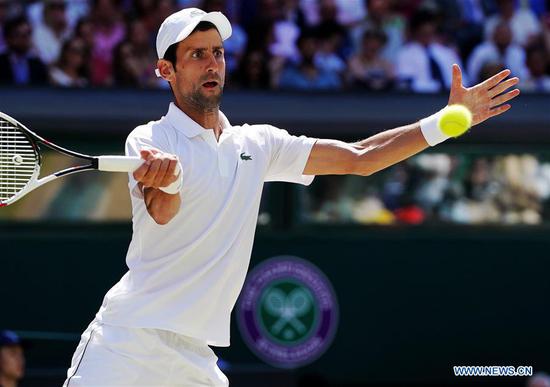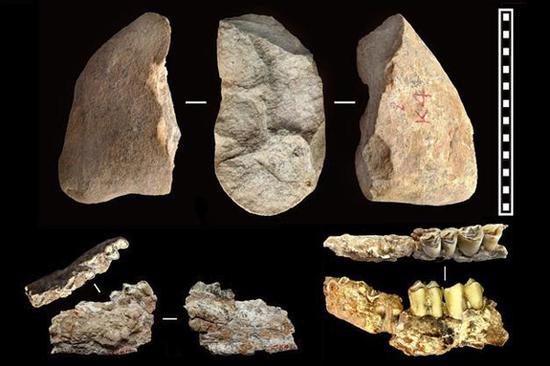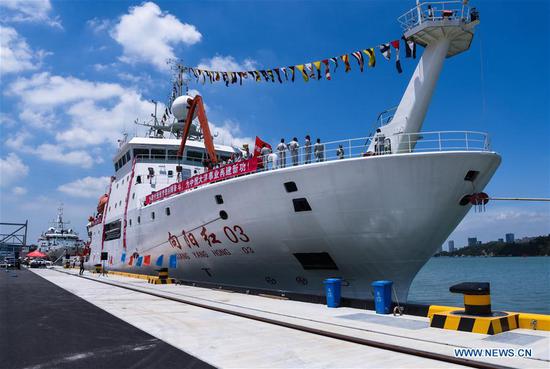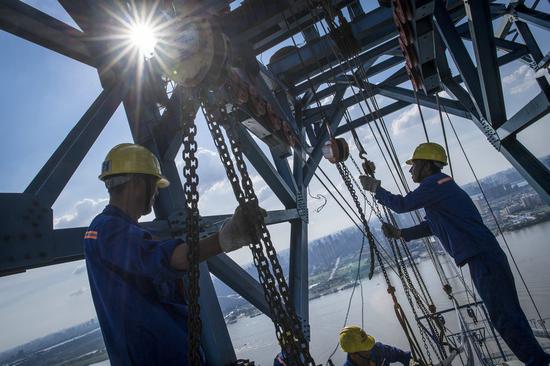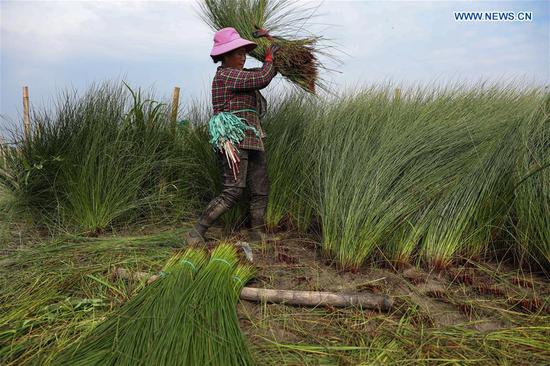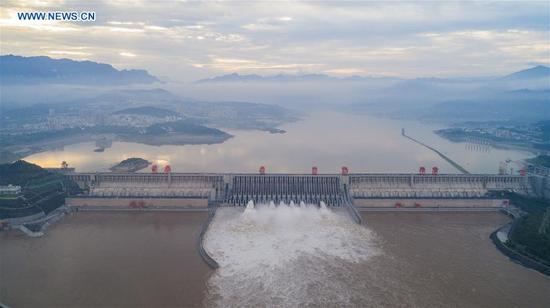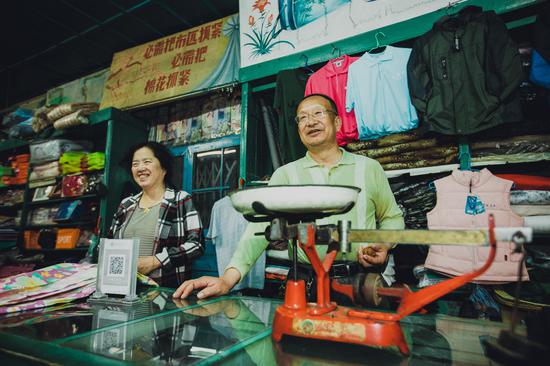A Chinese expert allayed concerns on the dragging effect of a trade row between China and the U.S. on the Chinese economy, as contribution of exports to growth declines.
China's economy grew by 6.7 percent year-on-year in the second quarter, 0.1 percentage points lower than in the first quarter, data from the National Bureau of Statistics (NBS) showed on Monday.
The economic data comes as trade tensions rise between China and the U.S., the world's largest economy.
However, NBS spokesperson Mao Shengyong told reporters that the impact of Sino-U.S. trade tensions was limited during the first half of the year.
"If there is any impact, it is relatively limited," Mao said. "We will monitor the situation in the second half of the year before reaching a conclusion."
Cong Yi, an economics professor at the Tianjin University of Finance and Economics, said the limited impact from the China-U.S. trade row proves China successful economic transformation since 2013.
"Contribution by exports to growth has been drastically reduced from over 60 percent to about 30 percent. Trade with countries and regions other than the U.S. has been promoted with great success, and the importance of the U.S. importance as a major export destination has been gradually reduced in the past years," Cong told the Global Times on Monday.
For the first half of 2018, the world's second largest economy grew at 6.8 percent, NBS said. That was the 12th consecutive quarterly performance between 6.7 and 6.9 percent, and was well above the government's 6.5 percent annual growth target.
As the growth momentum is taken over by domestic demand and new growth engines, the trade tensions has not had a major impact on China's economic growth, Cong said.
Mao said the trade row unilaterally started by the U.S. will have an impact of both economies, disrupt global supply chains, thus affecting global economic recovery and the continued growth of global trade.
The U.S. imposed 25 percent tariff on $34 billion worth of Chinese goods and plans to impose tariffs on another $200 billion. China retaliated with tariffs on $34 billion in U.S. goods.
Mao said while there are rising uncertainties overseas and the domestic economic transformation, the economy could still sustain stable and positive growth, with positive performance in consumption and investment.
Liu Dongliang, a senior analyst at China Merchants Bank, told the Global Times in an email that the slowdown in second quarter growth rate can be considered a sign of downward pressure.
"The shrinking of off-balance sheet financing and the negative impact of the Sino-U.S. trade row will add greater downward pressure. Further deleveraging may slow economic growth even further," Liu said.
Chinese foreign trade grew by 7.9 percent year-on-year to 14.12 trillion yuan ($2.11 trillion) in the first half of 2018, official data shows.















